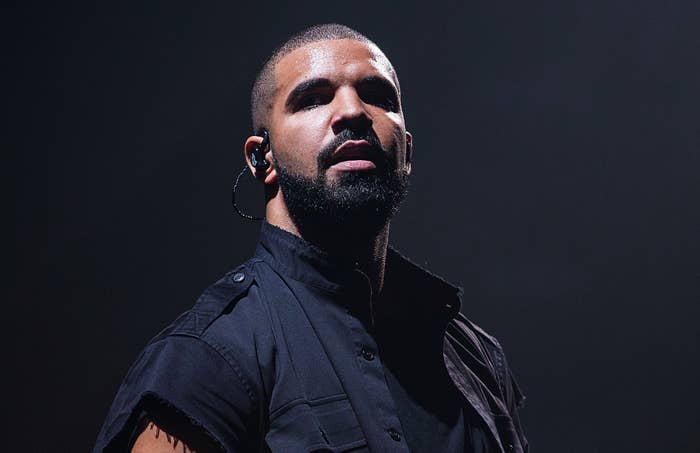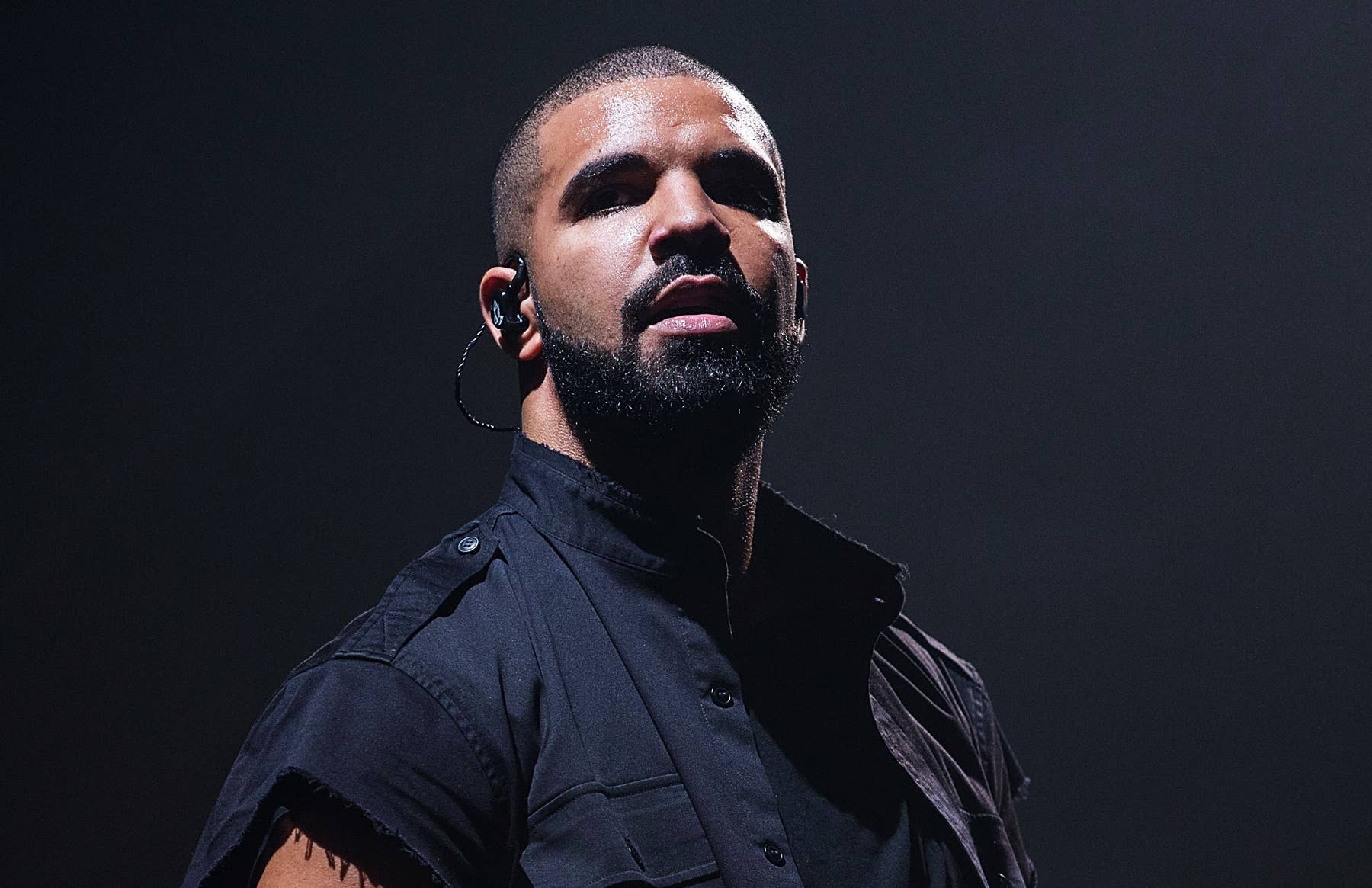
Leading up to the release of If You’re Reading This, It’s Too Late, Drake was fed up. Feeling disrespect from competitors and boxed in by some as a “soft” artist, he made his feelings clear with a surprise 17-song pack of clapbacks on February 13, 2015, five years ago today. His resentment helped usher in a darker and more edgy era for Drake that persists to this day.
Drake’s frustrations had been brewing for a couple years. He had already been a chart-topping success, but the numbers meant little without respect. On his previous solo project, 2013’s Nothing Was the Same—released in the same year that J. Cole, JAY-Z, and Kanye West all dropped new albums—Drake addressed the audacity of not being acknowledged as one of the greats at the end of “Pound Cake,” when he rapped, “Look, fuck all that ‘Happy to be here’ shit that y'all want me on/I'm the big homie, they still be tryna lil bro me, dog/ Like I should fall in line, like I should alert niggas/When I’m ’bout to drop somethin' crazy/And not say I'm the greatest of my generation.” When 2014 came around, he dropped “0 to 100/ The Catch Up.” On the second half of the song, he vowed to stop overthinking what the world wanted from him, and pledged to run up the score on his competition when he raps, “Maybe I’m searchin’ for the problems/Askin’ what was said and who was involved/Too focused on people’s feedback and provin’ ’em wrong/They say the shoe can always fit, no matter whose foot it’s on/These days feel like I'm squeezin’ in ’em/Whoever wore ’em before just wasn’t thinkin’ big enough/I’m ’bout to leave ’em with ’em.”
Before the tape dropped, his beefs with P. Diddy (which resulted in a melee at the club) and Tyga, who called out Drake for being “fake” in an interview with VIBE, forced The Boy to start seeing himself as the villain. This is how the story usually goes for villains; they feel so disrespected that their retaliation becomes inevitable. Drake fed into the hate and used the release of If You’re Reading This, It’s Too Late in 2015 to air out his grievances. He was tired of being the nice guy from the Take Care days.
He came in ready to talk his shit on IYRTITL. “Legend” was a pump fake, hinting at the old Drake who would approach each song with a dulcet vibratos, but the following song, “Energy,” set the tone for the rest of the tape (and frankly, the next few years). It’s a combative song with lines like, “I got enemies, got a lot of enemies/Got a lot of people tryna drain me of my energy/They tryna take the wave from a nigga/ Fuckin' with the kid and pray for your nigga,” that presents a mood the world wasn’t completely used to hearing from Drake yet. His stance was firm, revealing that he had a lot of feelings bottled up. The first few years of his career surely led to shaking hands and policting, but he rapped with commitment of faking no more.
The production on IYRTITL—mostly handled by PARTYNEXTDOOR, Boi-1da, 40, WondaGurl, Sevn Thomas, and Frank Dukes—was stripped back, allowing Drake’s aggressive messages to take center stage. He was rapping as raw and unfiltered as he wanted to, without the subconscious awareness that his songs needed to chart or sell. This is also reflected on the sinister “No Tellin.” Maybe he wasn’t responding to Kendrick’s verse on “Control,” but he sure was coming for other rapper’s necks: “All the rappers that you vouch for/Need to get out of the house more, they washed up/ And even if the team was religious with it I can't really see another squad tryna' cross us, naw.”
Drake was on a clear mission to let the world know that he was untouchable, and didn’t care for other opinions about it. To quote a line from his mentor Lil Wayne at the top of “Star67,” Drake came into the studio with clips for everyone who ever questioned his skill and character. He dabbled in a little bit of “old Drake” on songs like “Preach,” but even then, his new mentality rung out in lyrics like, “Niggas is all in they feelings these days/All in they feelings these days/ But hearing a scripture with that many 6s, you should be afraid.”
He ended the mixtape with “6PM In New York,” and the hook-less outro works as Drake’s retirement speech from his old self. He uses the song to address his beef with Tyga (“I heard a lil, lil homie talking reckless in Vibe/That’s quite a platform you chose, you should've kept it inside/Oh, you tried? It’s so childish calling my name on the world stage/ You need to act your age and not your girl’s age”) and taunts the world with a thought that he rightfully deserved to sit on the throne next to guys like Kanye and JAY-Z. “Yeah, boy, you rappin’ like you seen it all/You rappin’ like the throne should be the three of y'all,” he raps to himself in third person, referencing JAY-Z’s verse on Young Jeezy’s “Seen It All.”
The release of If You’re Reading This, It’s Too Late was a hot boiling confessional for Drake. He let out some momentary steam, only to start cooking again a few months later. To be a Drake fan for the rest of the year, was like watching Thanos collect all of the infinity stones. His beef with Meek Mill that summer afforded him the Power stone. When Meek Mill accused Drake of using Quentin Miller as his ghostwriter on “R.I.C.O.” and not posting his album, Dreams Worth More Than Money, he came for Drake’s head in a number of now-deleted tweets. Straight up, Meek caught a hot-headed Drake at the wrong time. Drake addressed the issues in a quick two-piece that brought us “Charged Up” and the Grammy-nominated “Back to Back.” His win was lopsided, and further proved that the new Drake was just as sharp in battle as he was on a studio project. Instead of letting the heat burn him down as it once did, any time a new issue arrived, it was like adding gasoline to his fire.
When he dropped What A Time To Be Alive that summer with Future, Drake’s unapologetically rough side was validated. At this point, he had been at it for months and kept his energy consistent since IYRTITL. The theme of that tape was no gimmick—it was Drake’s new world to play in.
For a brief four minutes at the end of What A Time To Be Alive, on “30 for 30,” Drake sent a eulogy to his old self again. “Used to give no reaction, now I'm overreacting,” he rapped. A few drama-filled years resulted in an eternal irreparable mood that he accepted for himself. “Drastically changin', thank you for all your patience/I'm just in a different space and I choose to embrace it,” he continued.
Over the next few years, Drake would operate with an all-time high success rate. He became the Drake who bulked up physically and grew out his facial hair; the Drake who rapped with street codes to show that he wasn’t as soft as the suburbs he shot Degrassi in; the Drake who had so much firepower and confidence that he could cross over into latin trap, afrobeats, and U.K. drill. He became the Drake who learned how to feed off of hate, disrespect, and anger, instead of being defeated by the mounting pressure. This can all be traced back to the time in 2015 when Drake had enough.



